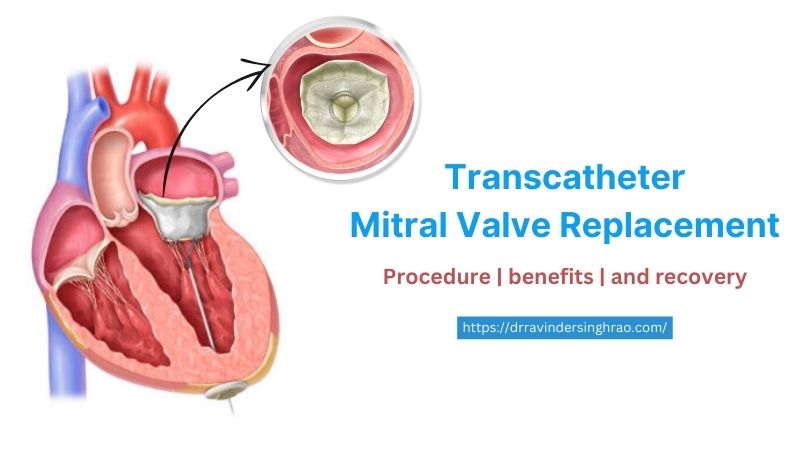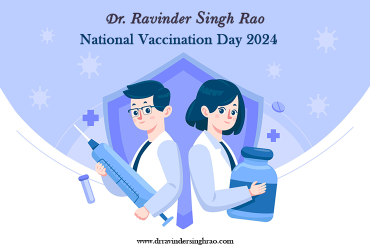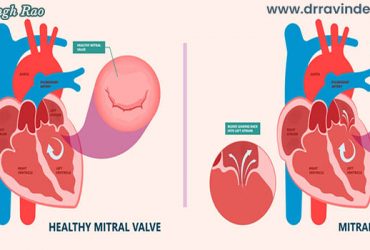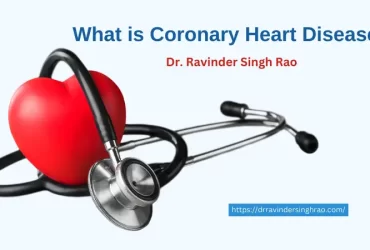Transcatheter Mitral Valve Replacement: Times now and then doctors always have looked for surgical procedures that open up the body at its minimum. Our body is our most precious investment. Even though we take care of our body at our best, there are times of negligence when we forget to take care of it. Just as our brain is important for controlling our body functions, our heart supplies blood to all the parts of the body for proper functioning. With its pumping action, blood is regularly supplied to all the tissues of the body, therefore regulating the controlled supply of nutrients and gases to all the parts of the body.
TMVR stands for Transcatheter Mitral Valve Replacement. The Mitral valve is one of the four valves present in the heart that control the supply of blood to the body. If the functioning, that is opening or closing of the valve is affected, the blood supply to the parts of the body is highly affected, most likely reduced. Two possible situations affect blood supply by the mitral valve.
- Mitral valve regurgitation: in this condition, mitral valves don’t close tightly thereby allowing backflow of the blood, pushing it back to the heart. This leads to improper functioning of the heart.
- Mitral valve stenosis: Narrowing of valves makes the heart pump blood more forcefully as the valve opening remains smaller.
Other than these two, there are other possible reasons for the dysfunction of the mitral valve such as old age, rheumatoid fever, infections, heart attack, etc.
Cases where conditions become severe and valve failure occurs, or patients with prior surgeries who had experienced failure in surgical procedures are advised TMVR (Transcatheter Mitral Valve Replacement) which is a minimally invasive technique of TMVR following conventional open-heart surgeries. Dr. Ravinder Singh Rao is the Best Heart Valve Expert In Jaipur, consult with him to know more information about TMVR/TAVR.
The procedure of Transcatheter Mitral Valve Replacement:
Transcatheter Mitral Valve Replacement (TMVR) is a complex procedure that requires a team of specialists to work together. This team includes cardiologists, imaging specialists, and cardiac anaesthesiologists, who ensure the safety of the procedure and work together to replace the mitral valve safely. This is a non-invasive technique hence there is no open-heart surgery. This procedure is performed by placing a catheter through the vein in the groin region. The imaging specialists guide the way to the heart from the groin region. The transcatheter valve is placed on the catheter and is positioned on the mitral valve where it expands so that it is secured in its place. Following the expansion, the catheter is removed from its place, i.e., the blood vessel.
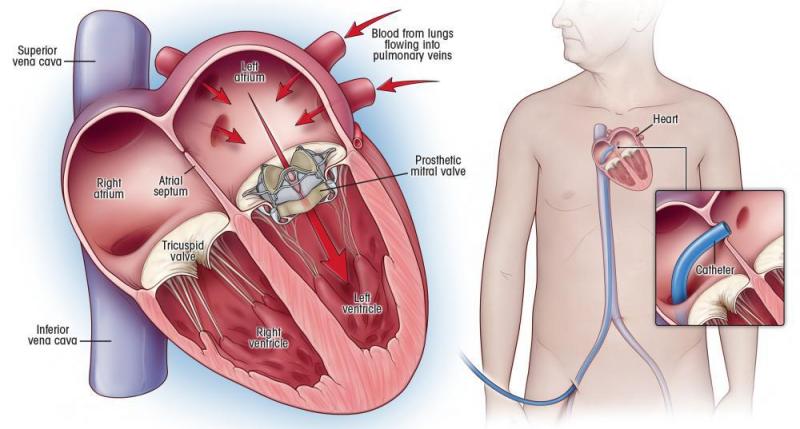
During the entire procedure, the patient is kept on constant sedation for a couple of hours for the precision and accuracy of the technique. Dr. Ravinder Singh Rao is Transcatheter Mitral Valve Replacement (TMVR) expert in India.
Benefits of Transcatheter Mitral Valve Replacement:
Many reasons make it better than conventional surgical procedures. A few of the benefits of TMVR are listed below:
- It is non-invasive, hence leaving no surgery marks on the body.
- Unlike traditional cardiac surgeries, there is comparatively less pain than any other tedious heart surgery.
- The recovery period is reduced to a few days as there is no open-heart procedure.
- Immediate effects can be seen post the surgery.
- There are lesser risks compared to other surgeries.
- Lesser bleeding and trauma compared to other surgeries.
- Shorter hospital stay, no need to stay longer in the hospital.
- Shorter recovery and quick return to normal activities.
Recovery from TMVR:
The recovery period of TMVR surgery is shorter than other complex heart surgeries, yet a blend of exercise, nutritional balance, education, and lifestyle changes are recommended post-surgery. There are many cardiac rehabilitation programs that your doctor can advise after the procedure of TMVR. Dr. Ravinder Singh Rao is The Best Doctor of Transcatheter Mitral Valve Replacement in India. Book an appointment today or call us Emergency Line (+91) 7891791586.

